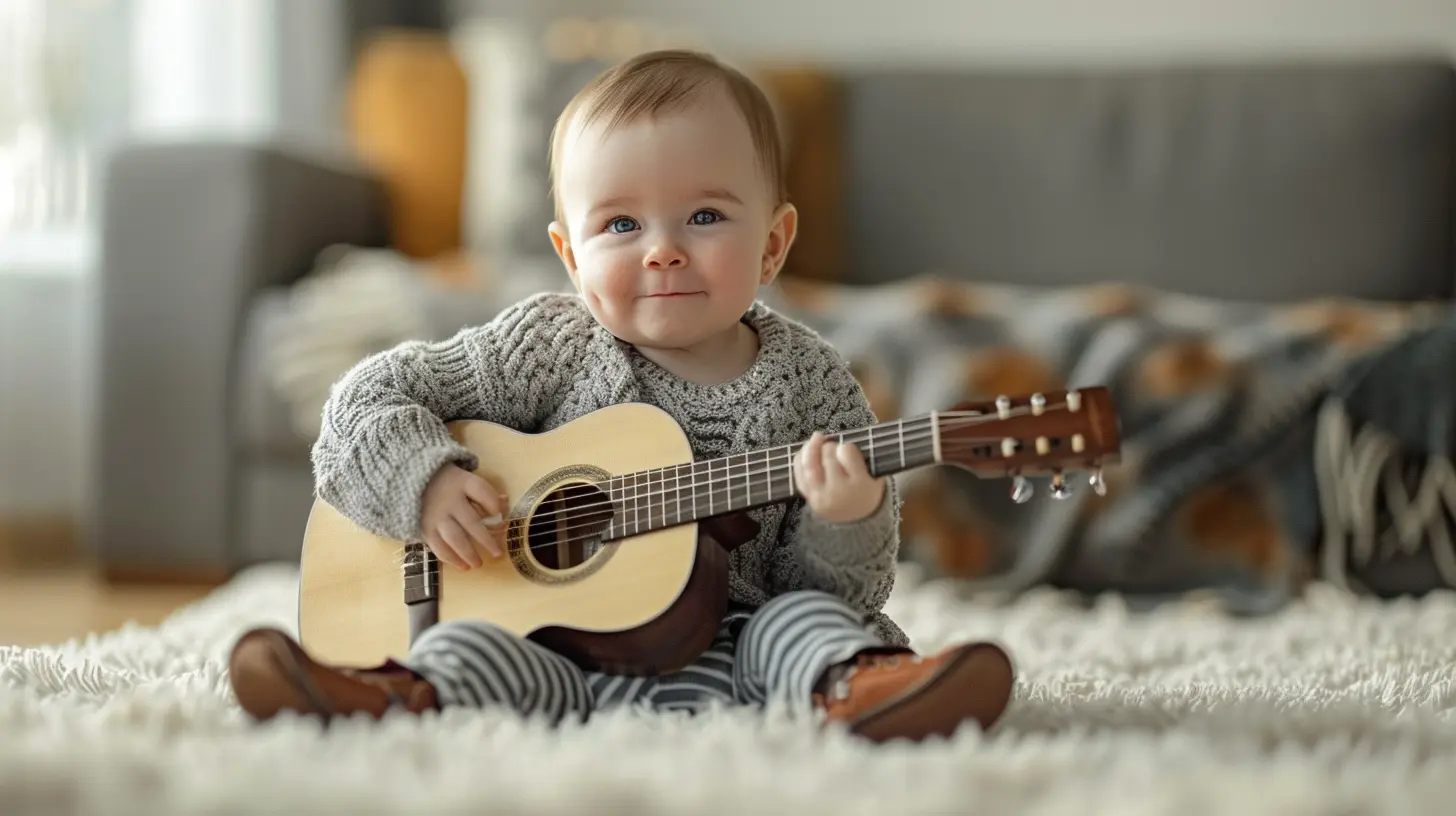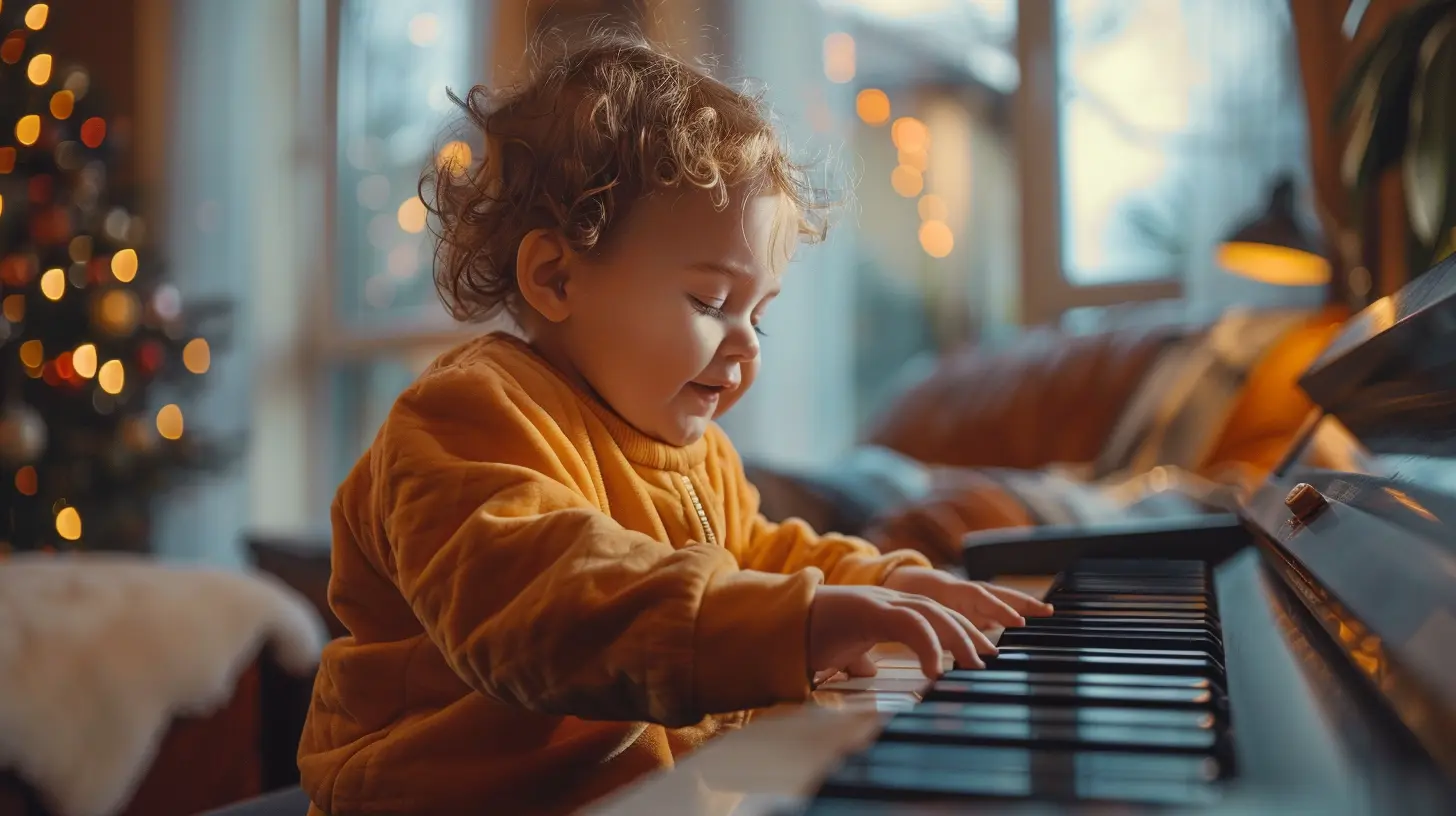How Music Can Enhance Cognitive and Emotional Development
10 August 2025
Music isn't just for jamming out during your morning commute or vibing at a party—it's basically a superfood for the brain. Whether you’re belting out songs in the shower or watching your toddler bang on pots and pans like a mini rockstar, music has a profound impact on cognitive and emotional development.
From boosting memory to shaping emotions, music works like magic on the human mind. But don’t just take my word for it—science backs it up. Let’s dive into how music turns our brains into well-oiled thinking and feeling machines.

🎵 Music and Cognitive Development: A Match Made in Brain Heaven
1. Music Boosts Memory Like No Other
Ever wondered why you can remember lyrics from a song you haven’t heard in years but can’t recall where you put your car keys five minutes ago? That’s because music activates multiple areas of the brain, including the hippocampus, which is responsible for memory.For kids, learning through music can enhance memory retention. That’s why preschool teachers still sing the alphabet song—because it sticks! So, if you're struggling to get your little one to memorize schoolwork, try putting it to a melody.
2. Enhances Language Skills (Move Over, Flashcards!)
Music and language go hand in hand. Studies show that children exposed to music from an early age develop better language skills, pronunciation, and even a richer vocabulary.Think about it—songs are essentially stories set to rhythm. By listening to and singing songs, kids pick up tones, patterns, and speech nuances naturally. So, if you’re debating whether to invest in music lessons or one of those overpriced language-learning apps, the answer is clear—bring on the tunes!
3. Fine-Tunes Focus and Attention Span
Raising a kid with the attention span of a goldfish? Music might be your secret weapon. When children engage in musical activities—whether it’s playing an instrument or following along to a rhythm—it strengthens their ability to focus and stay engaged.Musicians are known for having enhanced cognitive control, meaning they can switch between tasks and filter out distractions better than non-musicians. So, if you’re tired of repeating instructions a gazillion times, maybe it's time to introduce some structured music time.
4. Encourages Problem-Solving Skills
Music is built on structure—patterns, rhythms, and harmonies—which require logical thinking and problem-solving. Learning an instrument, for example, teaches kids how to decode sounds, coordinate finger movements, and anticipate what notes come next.Basically, every time your kid plays "Twinkle, Twinkle, Little Star" on the piano, they’re secretly training their brain to tackle complex problems in the future. Who knew nursery rhymes were brain workouts in disguise? 
🎶 The Emotional Power of Music: Cue the Happy Tears
5. Music Is a Mood Booster (Instant Happy Vibes!)
Ever put on your favorite hype song and instantly feel invincible? That’s because music releases dopamine—the "feel-good" chemical in the brain. Kids, too, experience this rush of happiness when they listen to upbeat and energetic tunes.Using music intentionally at home—like a morning pump-up playlist—can set the stage for a positive atmosphere. And let’s be real, anything that helps prevent those morning meltdowns is worth trying!
6. Helps Kids Express Emotions (Because Words Are Hard)
Sometimes, kids struggle to express how they're feeling. Enter: music. Whether it’s a slow, calming lullaby for winding down or a high-energy jam session to burn off steam, music gives kids an outlet to process emotions.Studies show that children who are exposed to music regularly tend to be better at recognizing and regulating their emotions. In other words, using music strategically might just mean fewer tantrums. (You’re welcome.)
7. Reduces Stress & Anxiety
Life can be overwhelming—even for kids. But music has been scientifically proven to lower cortisol levels (the stress hormone). Soft, soothing sounds can help children relax during stressful moments, like doctor visits or bedtime battles.So, the next time your little one is having a moment, skip the lectures and try playing some calming tunes instead. Music therapy is a thing for a reason!
8. Strengthens Social Bonds (Because Friends Matter)
Music is one of the most universal ways people connect. Singing together, dancing, or playing instruments in a group fosters teamwork, cooperation, and even empathy.Think about how kids naturally gravitate toward singing together at birthday parties or school recitals—it’s not just cute; it’s an essential part of their social development. Team music activities also teach crucial skills like taking turns, listening, and working toward a common goal. 
🎼 How to Introduce Music Into Your Child’s Life
You don’t have to be Beethoven to incorporate music into your child’s daily routine. Here are a few easy ways to get started:🎤 1. Sing with Them (Even If You’re Off-Key)
Your kid doesn’t care if you sound like a dying cat—singing with them strengthens your bond and enhances their language skills. Plus, it’s fun!📻 2. Play Background Music Throughout the Day
Soft classical music during homework time? Upbeat tunes during playtime? Yes, please. Set the mood with music that matches the moment.🥁 3. Encourage Instrument Play
No, you don’t have to buy a grand piano. Simple instruments like maracas, tambourines, or even DIY shakers can spark a love for music.🕺 4. Have Dance Parties
Turn up the music and let loose! Dancing isn’t just great for burning energy—it also reinforces rhythm and coordination.🎶 5. Introduce Music Lessons
If your child shows interest, consider structured music lessons. Whether it’s piano, guitar, or even drumming on the kitchen table, learning an instrument can work wonders for their brain development.
🎧 Final Thoughts
Music isn’t just background noise—it’s a powerful learning tool, an emotional outlet, and a social connector all wrapped into one. From boosting brainpower to fostering emotional intelligence, music deserves a prime spot in every child’s life.So, the next time you catch your kid making up silly songs or banging away on a toy xylophone, don’t cringe—celebrate. They’re building a brain that’s wired for success (and maybe even a future Grammy).
Music isn’t just entertainment. It’s brain fuel. And let’s be real: Isn’t life just better with a soundtrack?
all images in this post were generated using AI tools
Category:
Child DevelopmentAuthor:

Austin Wilcox
Discussion
rate this article
1 comments
Solenne McNeal
Music truly is magic for kids! It’s amazing how melodies can spark creativity and boost little hearts and minds. 🎶❤️
September 2, 2025 at 2:58 PM

Austin Wilcox
Absolutely! Music nurtures creativity and emotional growth in children, making it a powerful tool for their development. 🎵✨


